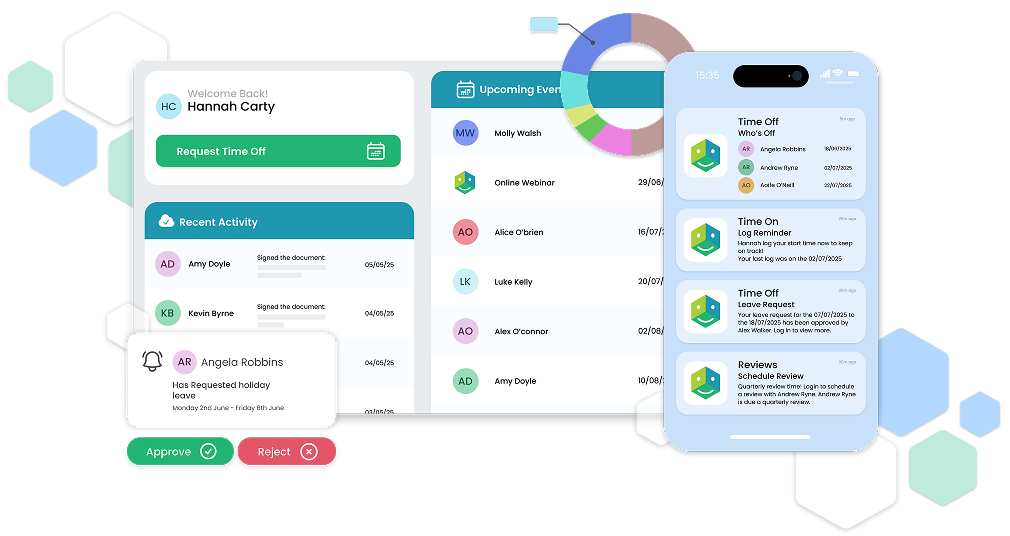The European Union’s Artificial Intelligence Act (AI Act), passed by the European Parliament on 13 March 2024 and approved by the EU Council on 21 May 2024, represents a pioneering effort to regulate artificial intelligence comprehensively. The Act officially came into force on 1 August 2024. For businesses, understanding and complying with this new regulatory framework is crucial to ensure ethical practices and avoid legal repercussions.
What is the AI Act?
Overview of the European AI regulation
The AI Act is the EU’s first significant regulation on artificial intelligence, categorising AI systems into three risk levels: unacceptable, high, and low. Unacceptable risk AI applications are banned outright, high-risk systems face stringent regulations, and low-risk systems are subject to minimal oversight.
Importance of the AI Act for businesses
Compliance with the AI Act is not just about avoiding fines; it also positions your business as a responsible and ethical player in the market. With the increasing reliance on AI, adhering to these standards can enhance your reputation and build trust with customers and partners.
Key provisions of the AI Act: What businesses need to know
The Act outlines several critical requirements for high-risk AI systems. These include implementing a robust risk management system, ensuring data quality and governance, maintaining transparency about the AI’s operations, and allowing for human oversight. Businesses must take these provisions seriously to stay compliant.
Practical Steps for AI Act Compliance
Assessing your AI systems
Begin by evaluating your AI systems to determine if they fall under the high-risk category. This assessment involves analysing the potential impact of your AI applications on individuals and society.
Implementing risk management practices
Develop a risk management plan that includes continuous monitoring and mitigation of potential risks. This plan should be dynamic, adapting to new insights and changes in your AI systems.

Enhancing data governance
Ensure that your data management practices are robust. This involves maintaining the quality and integrity of data used by your AI systems and ensuring compliance with existing data protection regulations.
Using AI compliance tools
Leverage tools designed to help businesses comply with the AI Act, such as the AI Act Compliance Checker. These tools can provide valuable guidance on meeting regulatory requirements and streamline the compliance process.
Training employees on AI compliance
Invest in training your employees on the ethical use of AI and the specific requirements of the AI Act. A well-informed team is crucial for managing AI systems responsibly and ensuring ongoing compliance.
Engaging with stakeholders
Transparency and open communication with stakeholders, including customers, partners, and regulators, are essential. This engagement helps build trust and ensures that your AI practices are understood and supported by those affected by them.
Benefits of Complying with the AI Act for Businesses
Complying with the AI Act offers numerous benefits. Firstly, it builds customer trust by demonstrating a commitment to ethical AI practices. This trust can translate into a stronger brand reputation and increased customer loyalty. Additionally, adherence to the AI Act can give your business a competitive edge, as consumers and partners are increasingly valuing ethical standards in AI deployment. Finally, proactive compliance minimises the risk of legal issues and potential fines, providing a safeguard for your business.

Future Plans and Updates for the AI Act
The AI Act is expected to evolve as technology advances and new challenges arise. The EU plans to periodically review and update the Act to address emerging AI technologies and applications. This means businesses must stay informed about any changes to the regulations and be prepared to adapt their practices accordingly. Keeping an eye on updates from the European Commission and engaging with industry forums can help businesses stay ahead of regulatory changes.
The EU AI Act and the Future of Business AI
The EU AI Act is a landmark regulation with significant implications for businesses of all sizes. For businesses, staying informed and compliant with the Act is essential not only to avoid legal pitfalls but also to build a reputation as a responsible and ethical business. By understanding the requirements of the AI Act and taking proactive steps to comply, businesses can navigate this new regulatory landscape effectively.
For more detailed information and tools to help with compliance, visit the EU AI Act website.
Staying proactive and informed will help businesses reap the benefits of AI while adhering to the highest ethical standards.









